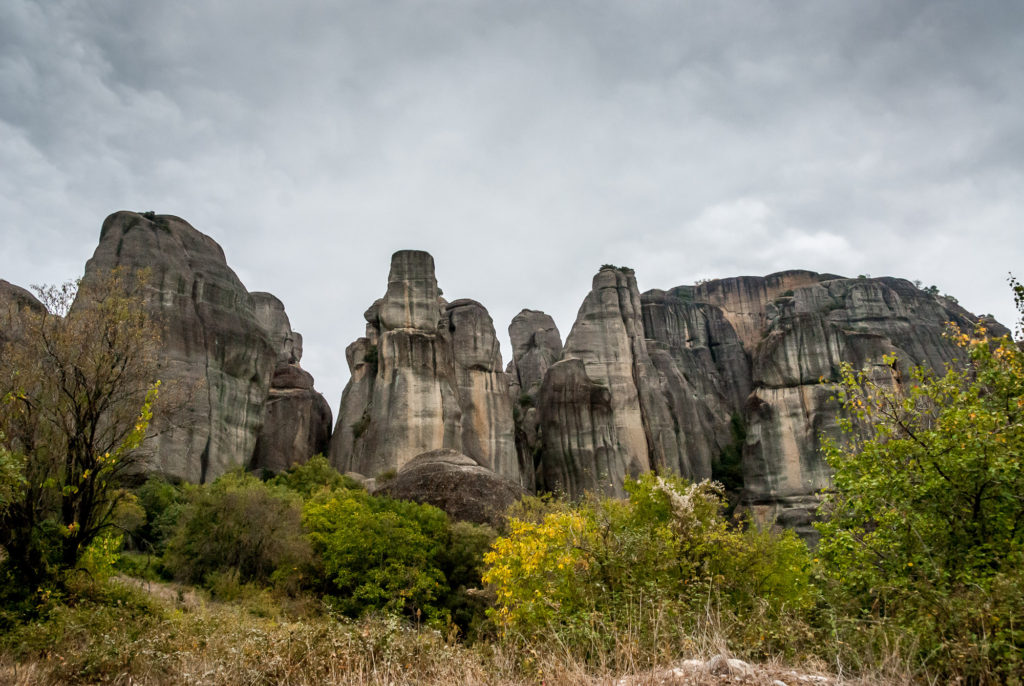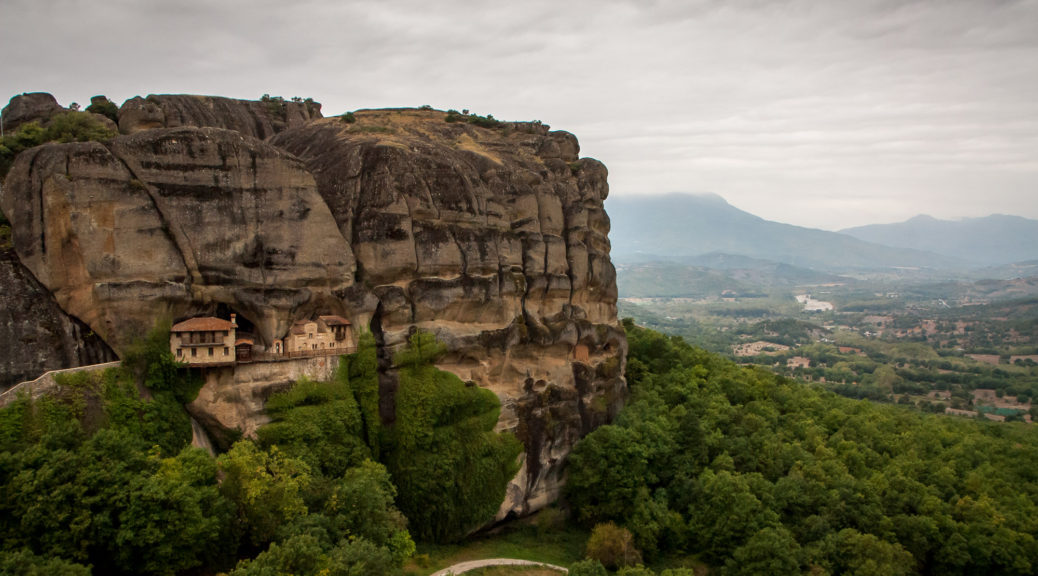
Next Stop: Greece!
Getting There
Ksamil (our last stop in Albania) is only about four miles from the Greek border. However, that didn’t mean getting to Greece was simple or easy. We ended up taking a taxi back to Sarande and, from there, catching a ferry to Corfu. In Corfu we needed to transfer to another ferry to take us to the Greek mainland. We landed in Igoumenitsa which was eerily deserted and seemed to be nothing but a port and a bus station. From there we caught a bus to our first official stop in Greece: Ioannina.
Ioannina
I had never heard of Ioannina before this trip and it was not on the long list of places I was eager to visit in Greece. However, considering what an ordeal it would be just to get to the country, getting all the way to Meteora in one day would have been pretty much impossible.
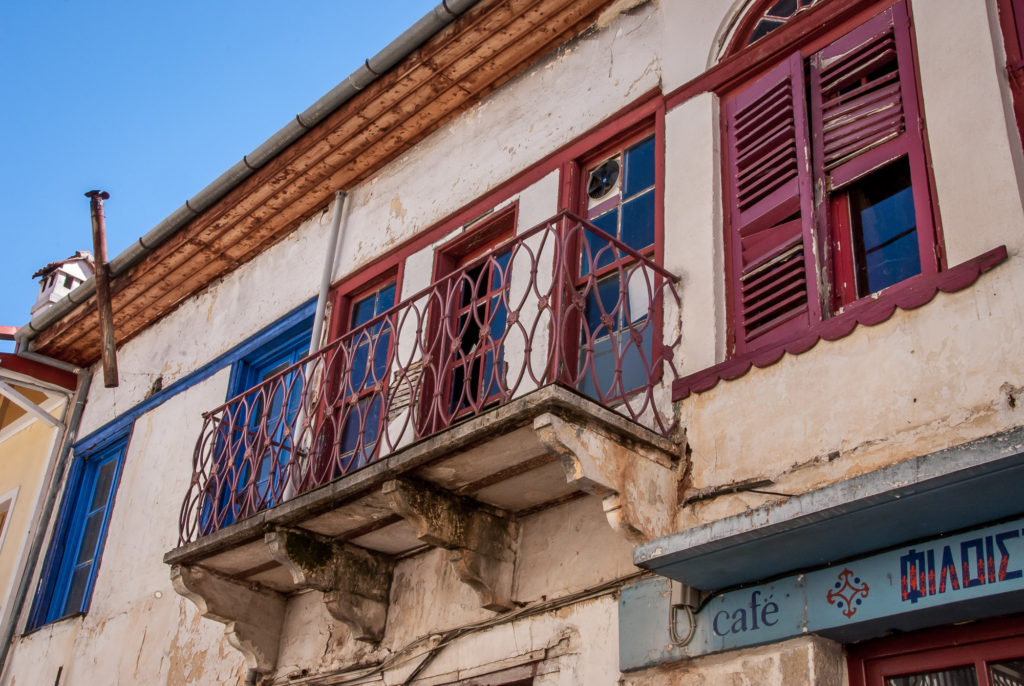
Ioannina turned out to be an excellent introduction to all the things we would end up loving about Greece: amazing historic architecture, warm and welcoming people and seriously fantastic food.
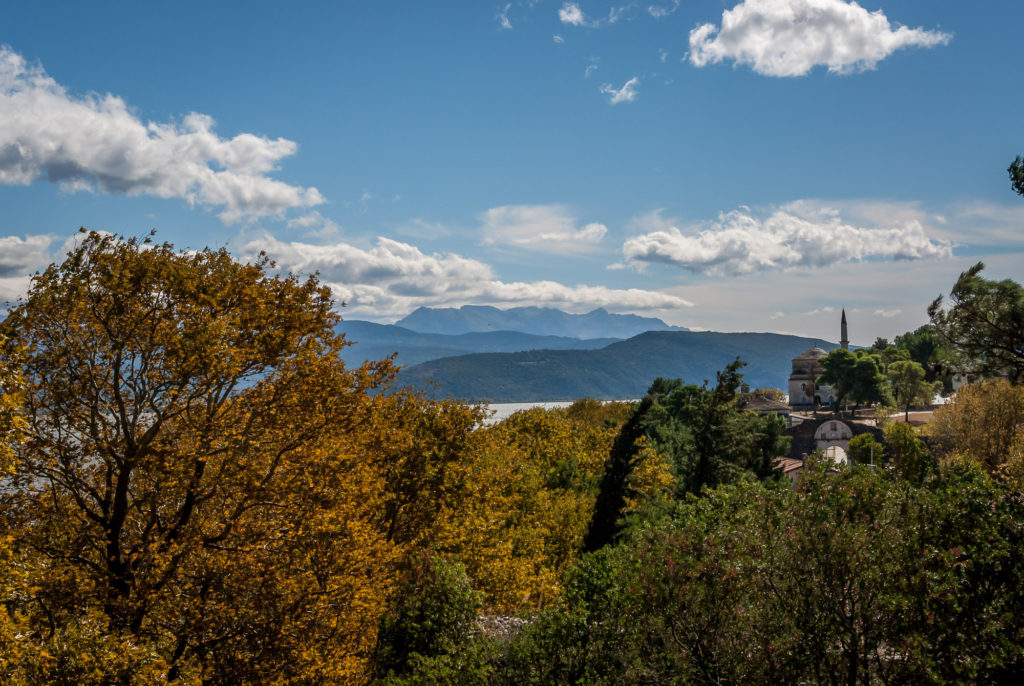
We arrived in the evening, tired and hungry after a long day of travel. After checking in at our apartment we immediately headed to dinner at a nearby restaurant. We ordered a salad and two appetizers. When we asked our waiter if that would be enough food, he laughingly said yes; coming back with three enormous dishes.
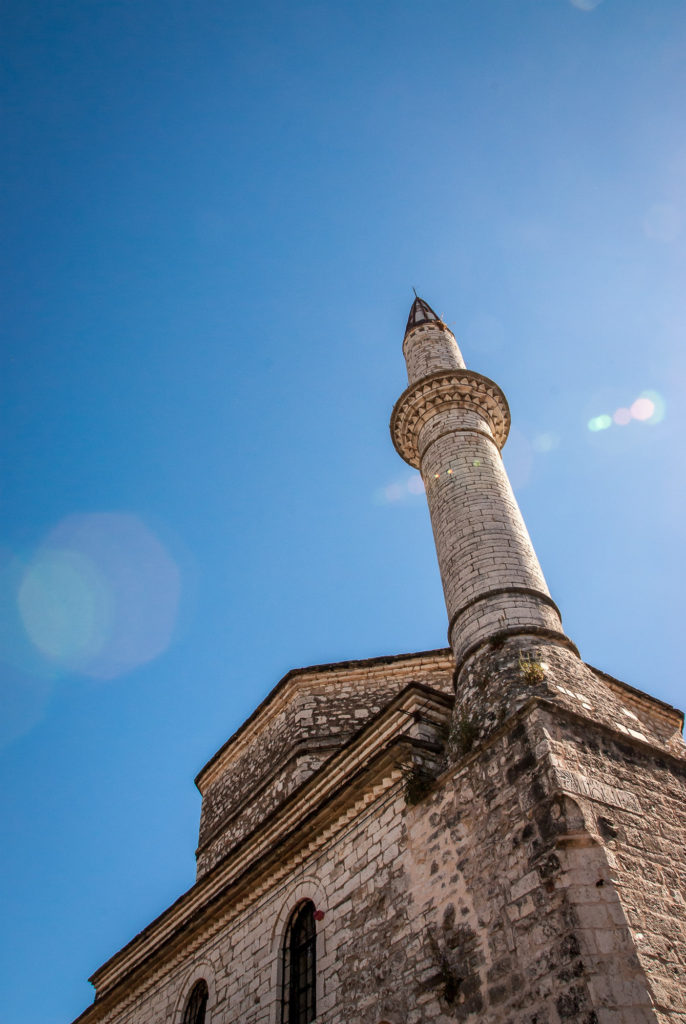
That meal would become emblematic of Greek dining for us: generous portions of fresh, delicious food washed down with fabulous, cheap wine. Though it has been almost a year now, I don’t think I’m exaggerating when I say we enjoyed every meal we ate in that country.
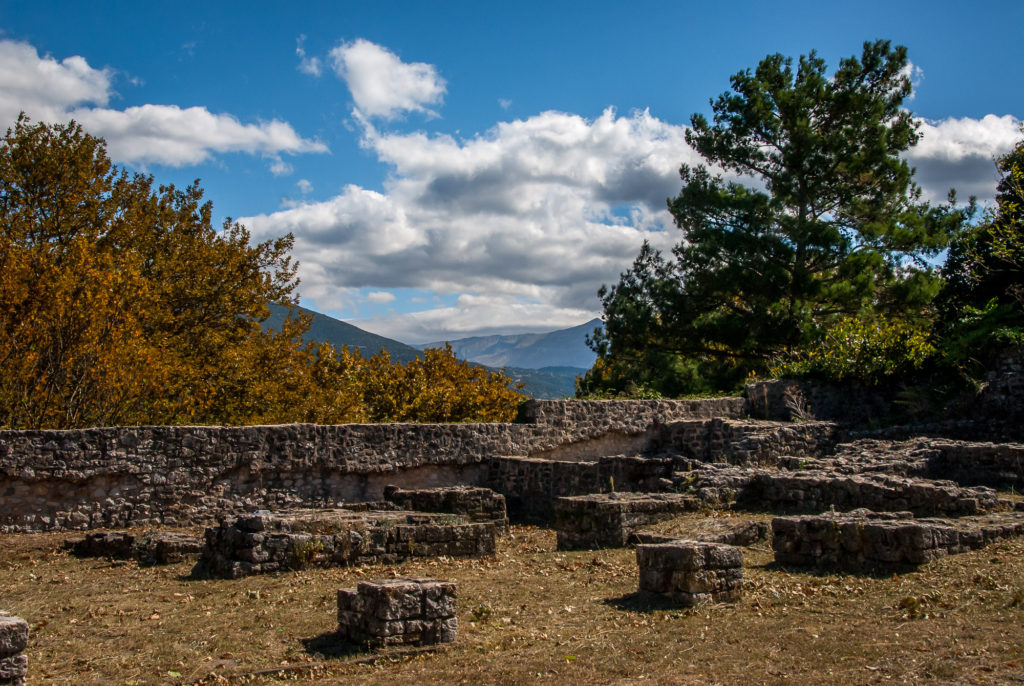
Ioannina is a charming little city located on the banks of a lake in central northern Greece. It traces it’s origins to Byzantine times. It was part of the Ottoman empire for almost 500 years, from 1430 to 1913. Thick, stone walls still surround the oldest part of the city, called the Kastro.
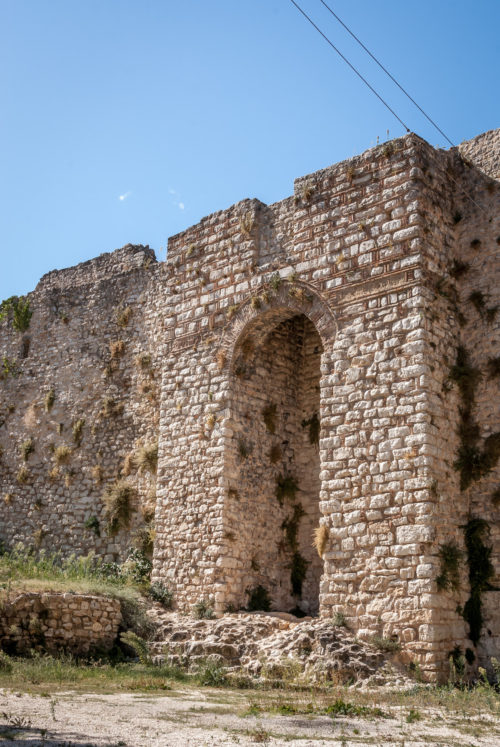
Inside the walls is the Its Kale, or inner castle, which includes the restored Fethiye Cami mosque from the Ottoman period. We enjoyed wandering around the ruins and taking in views of the lake and surrounding mountains. This inner sanctuary felt incredibly peaceful; we only saw a handful of other people while we explored.
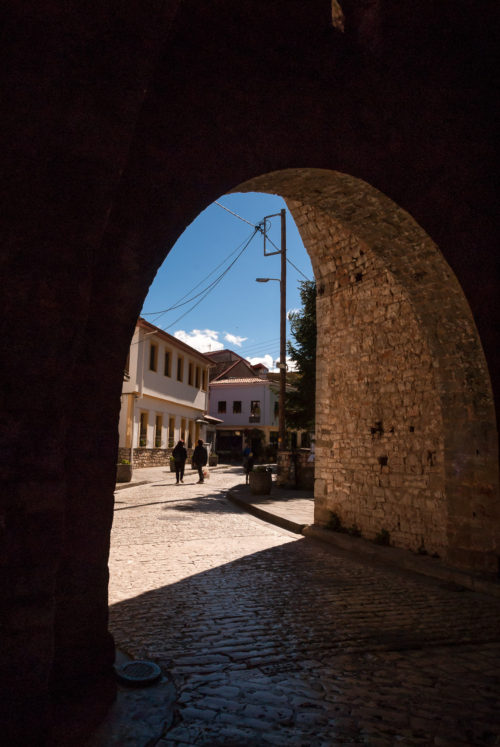
Parts of Ioannina reminded me of other former Ottoman cities, like Sarajevo, with narrow streets and low, stone buildings. But the city also feels distinctly Greek. Other highlights of our short time there included getting a free dessert from a friendly restaurant owner and trying rakomelo, a delicious sweet liquor, for the first time.
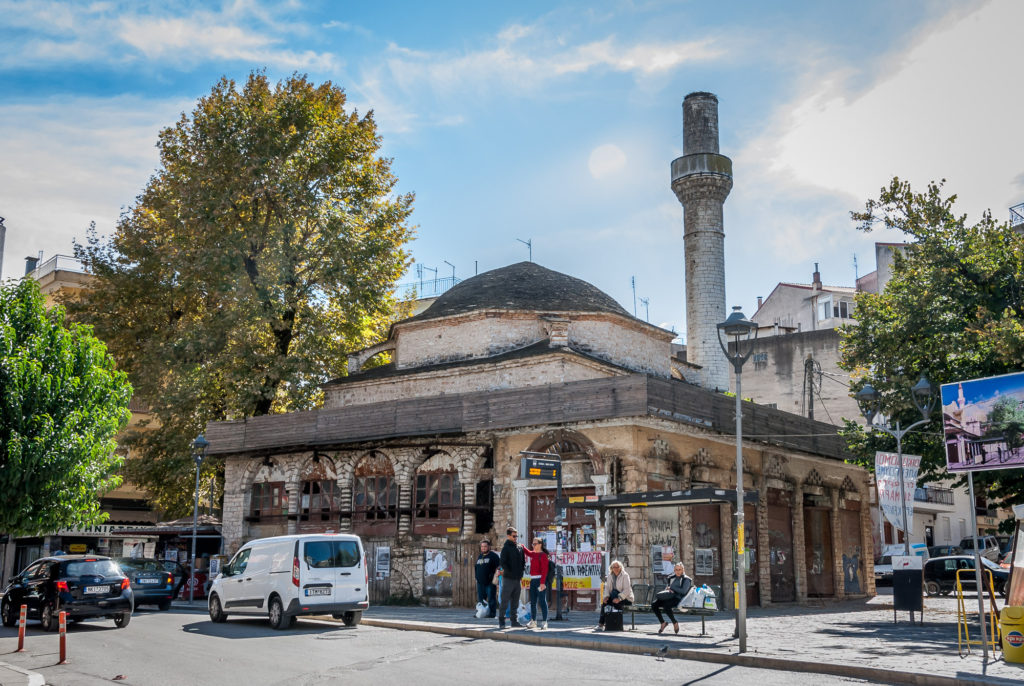
Hanging Monasteries
After a great couple of days exploring Ioannina it was time to move on to our first Greek-bucket-list destination: Meteora. Meteora is an incredible natural rock formation near the town of Kalambaka. Immense stone pillars jut out of the earth, on top of which sit six Greek Orthodox monasteries.
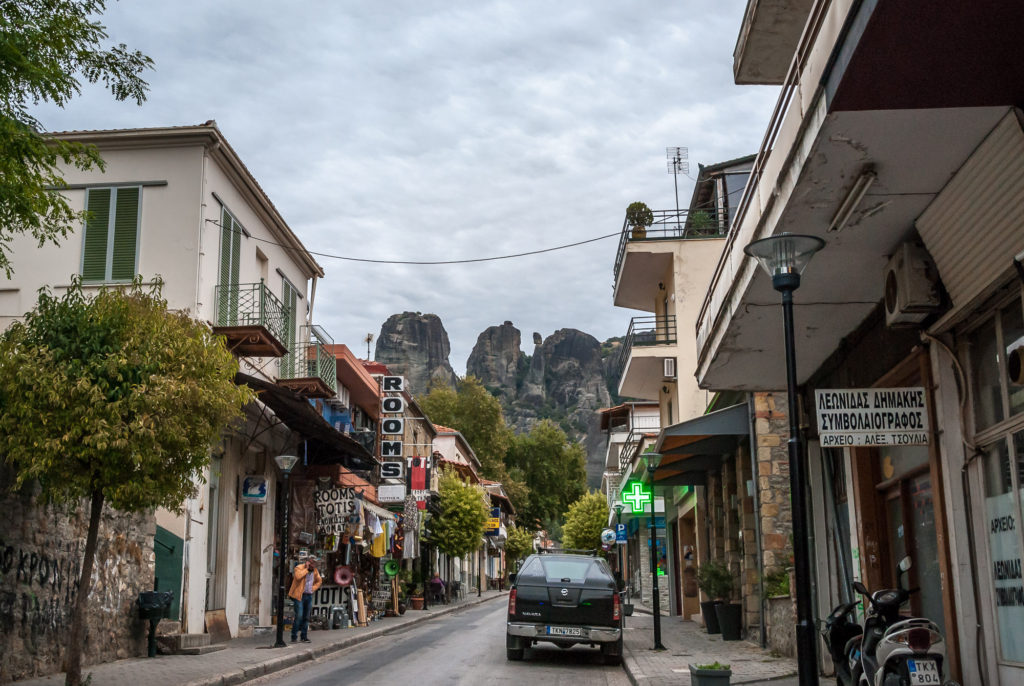
We stayed at a local hostel that offered hiking tours of Meteora. On our tour we learned that the strange rock towers are actually made from layers and layers of sediment left behind from when this area was a sea. You can actually see pebbles and pieces of shell embedded in the rock.
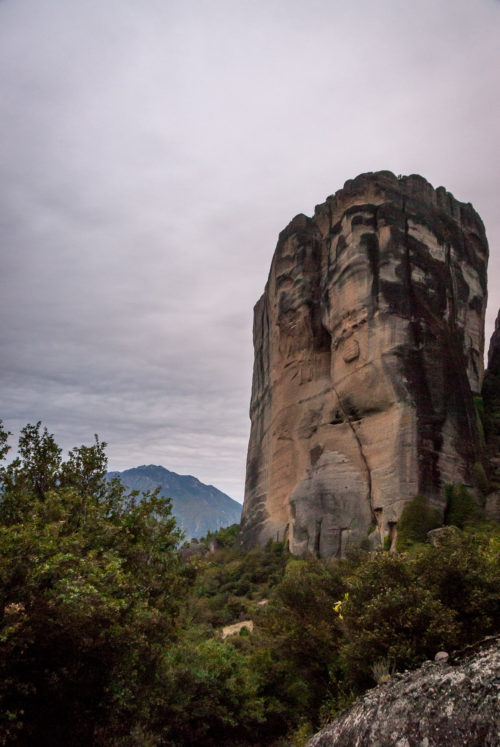
The rock formations at Meteora are unlike anything I’ve seen and are worthy of a visit all by themselves. The fact that medieval monasteries cap six of them is nothing short of mind-blowing. Especially when we learned that the monks who originally built them reached the top by climbing up spikes that they drove into the rock!
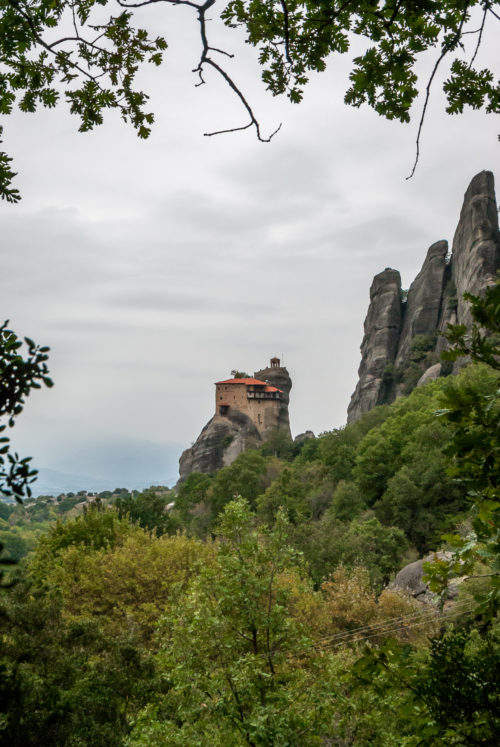
Luckily our tour did not involve any rock climbing. We were able to reach some incredible view points by hiking up the surrounding mountains.
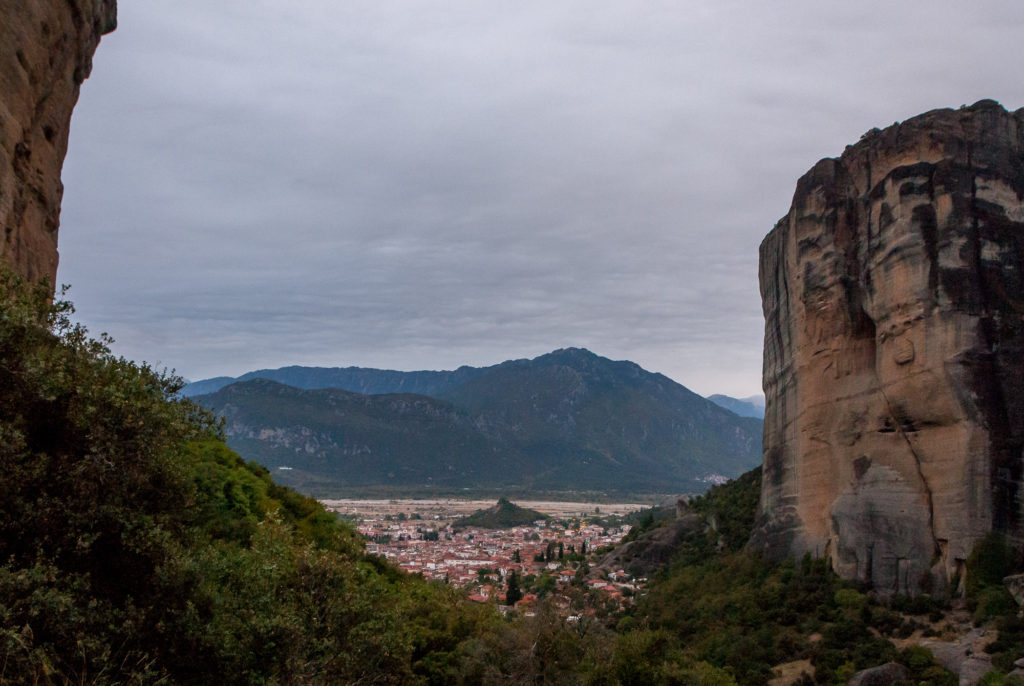
We did get to go inside the largest monastery, Great Meteoran. Here we saw our first examples of Byzantine Greek art. Every inch of the dimly lit interior of the main chapel is covered in religious art, mostly portraits trimmed in gold. It was a stark contrast to the airy Catholic churches we’d visited in Northern and Western Europe.
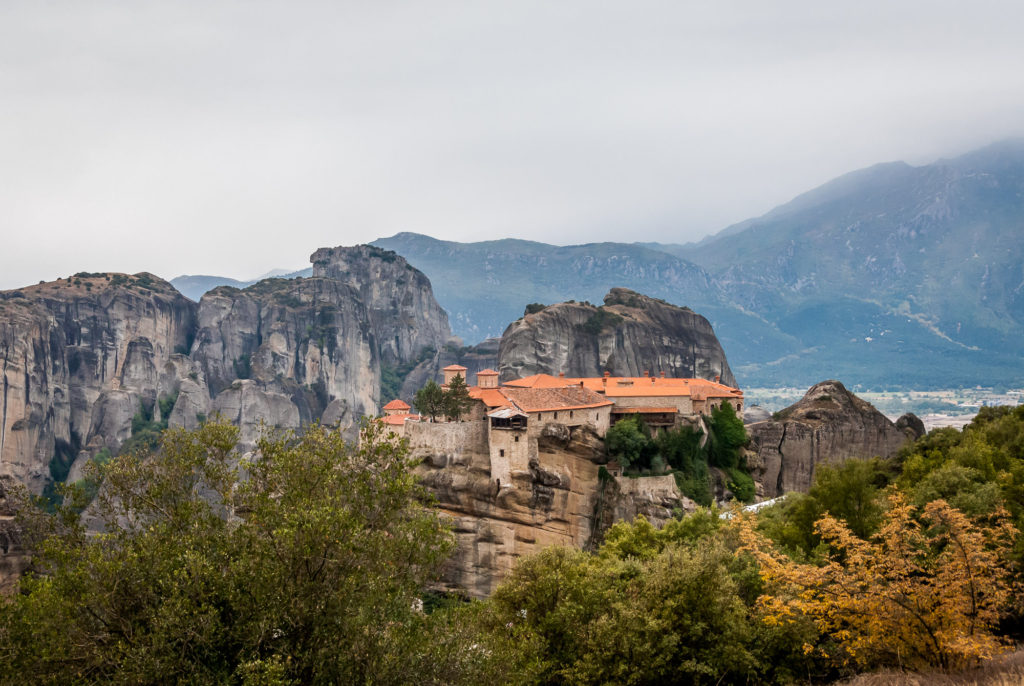
Only a handful of monks live at the monasteries these days and apparently they never leave. While exploring Great Meteoran we got to see the enormous net and pulley system they use to hoist supplies to the top.
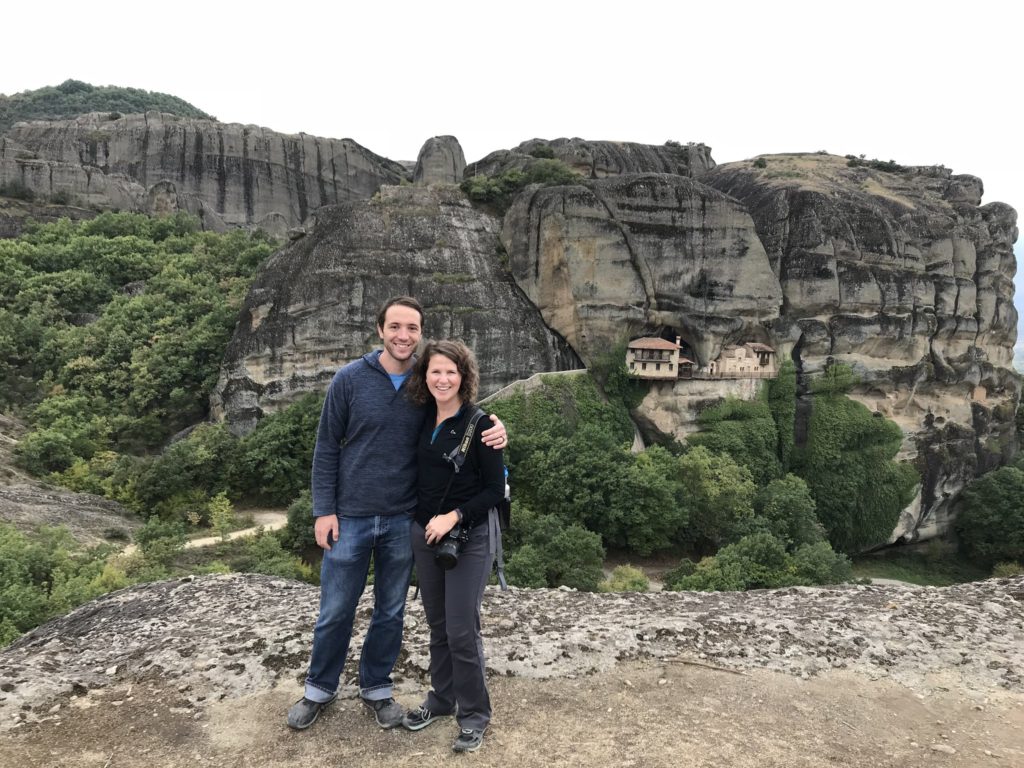
Down below the monasteries, the town of Kalambaka was pretty sleepy when we were there. We did find some more amazing Greek food while we were there. I got my first gyro pita at a little local grill place that we managed to visit twice in our two day visit. We also tried some delicious local pastries, dripping in honey.
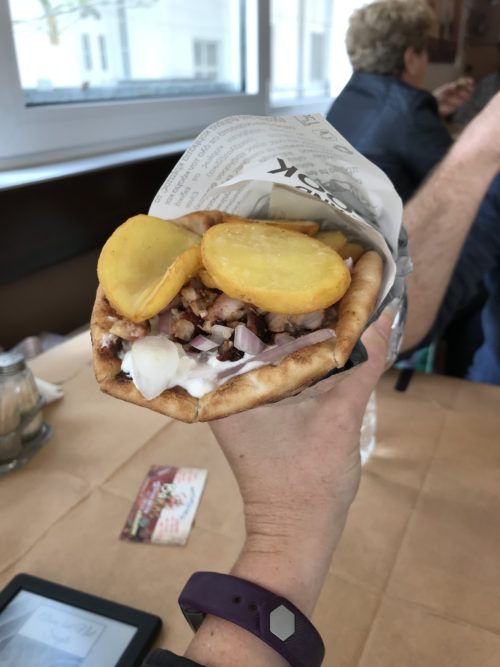
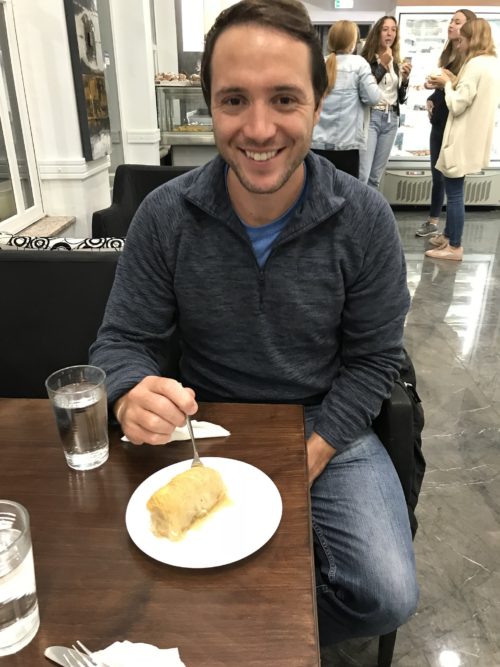
Even in the cloudy, occasionally drizzly weather, Meteora was completely stunning. Greece was the twenty first country we’d visited on this trip, our second to last. And yet this place was completely unlike anything we’d seen so far. The longer we traveled the more I was in complete awe of the variety of natural wonders to be discovered on this planet.
